A mission to bring the joy of reading to children in Plymouth
- Published
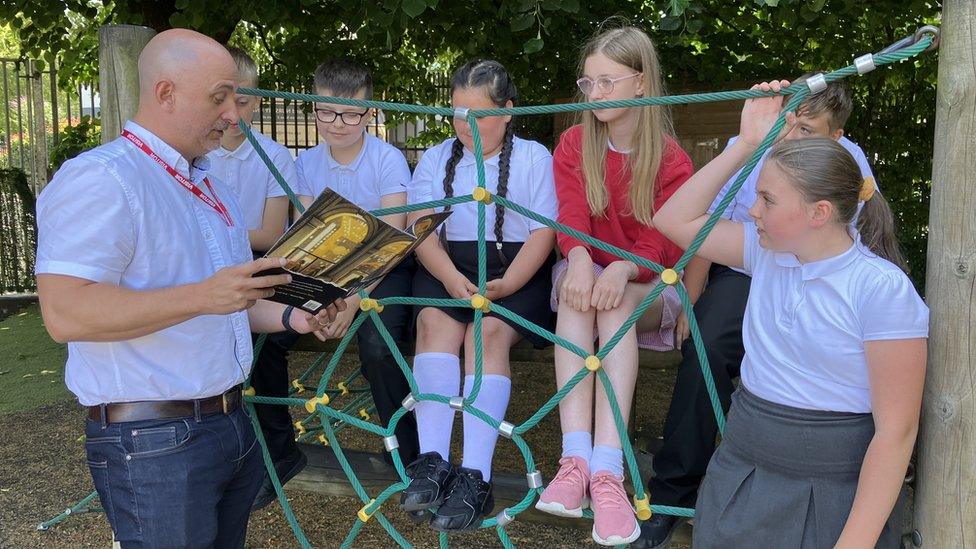
Carl Heslop, who was a pupil at Stonehouse, is among business leaders who read to school pupils
For Kerry Bidewell, there was a defining moment in her charity's mission to help schoolchildren find joy in reading.
Promoting Children in Plymouth (PCIP) had just delivered a story telling session and gifted each pupil a book.
Ms Bidewell said: "The reaction of one little boy will stay with me, he had to check the book was really his to keep.
"He hastily wrote his name in it, then stood there and hugged it and said 'I feel rich'."
PCIP runs a project inviting community role models into classrooms in Plymouth to break down literacy barriers.
Relatable people from fields including medicine, law and sport read and gift books to children.
The charity has delivered 492 story telling sessions in the city over two years.
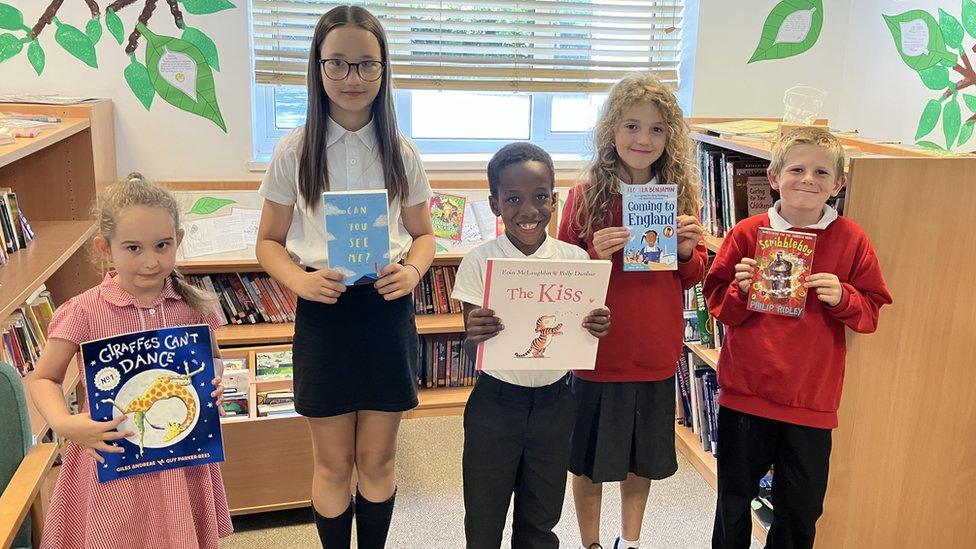
Pupils were rewarded for making progress with reading at home by choosing books from the vending machine
According to the National Literacy Trust, external, one in five children between the ages of five and eight did not own books at home in 2022.
But Ms Bidewell, the charity's development manager, said this "book poverty" figure is higher in many of the city's classrooms.
She said: "We have been to multiple schools with multiple classes in Plymouth where up to 50% of the children do not have books at home.
"Department of Education figures last year show 58% of children from low income families in Plymouth are heading into secondary school not meeting the year six reading, writing and maths standard."
Ms Bidewell said the statistics were often reflective of a "lack of opportunity", played out across generations.
She added: "The challenges schools face around literacy in the most vulnerable areas are so much higher than their peers in more affluent areas."
Yet the Department for Education cites reading for pleasure as more important for children's educational success and "life chances" than their family's socio-economic status.
Its benefits include "improved text comprehension and grammar, increased general knowledge, improved attention spans", and "heightened levels of social and emotional wellbeing".
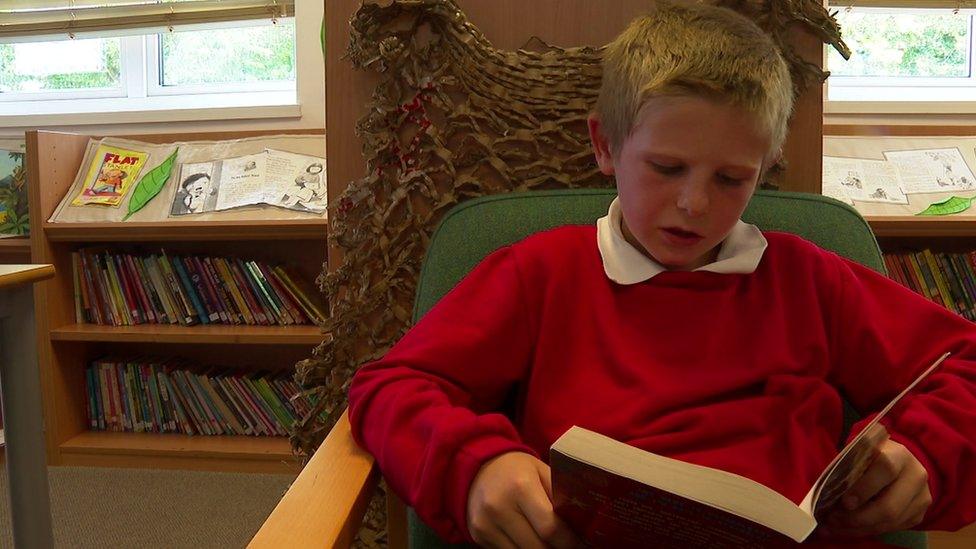
Toby reading his new book from the vending machine he was given as a reward for his progress
St Peter's Primary School in Stonehouse is working with the scheme.
When the BBC visited, the charity was also installing a book vending machine, sponsored by Plymouth law firm Womble Bond Dickinson.
Pupil Toby, nine, said: "I like reading and I like reading at home, I've improved a lot because I know I put loads of expression in.
"When I'm feeling down I do it to cool my mind down.
"When you need a job you need to read different stuff to help you with it."
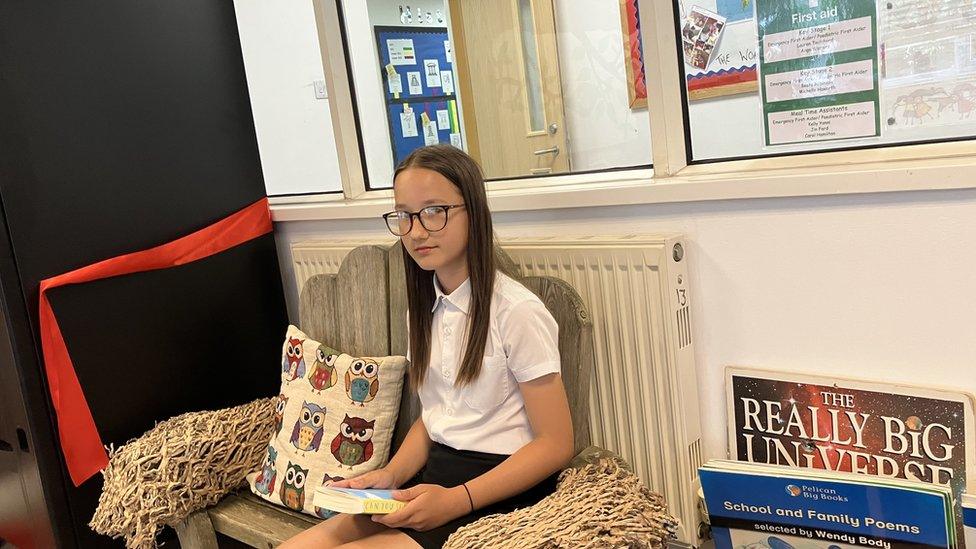
Zofia, 11, said reading at home helped her to feel relaxed
Zofia, 11, added: "I think reading is important because it's easier to read more in the future and to understand more things.
"Reading at home makes me feel relaxed."
Nationally, the gap between children from "disadvantaged backgrounds" compared to those from "non-disadvantaged backgrounds" increased to the highest level since 2012, Department of Education figures show.
Carl Heslop, owner of Plymouth Patriots basketball team, is a volunteer reader.
He was a pupil at a school in Stonehouse, which sits in the ward of St Peter and the Waterfront.
Along with Devonport, the ward has Plymouth's highest proportion of children in relative low income families, according to Plymouth City Council data for 2021/22.
Mr Helsop said: "I think everyone assumes that every child has access to books and to reading and support and that's not always the case.
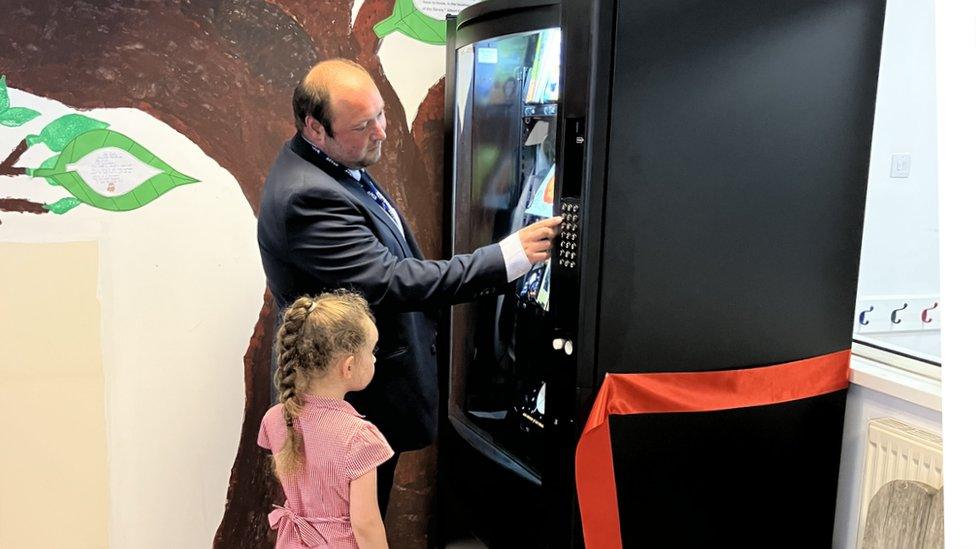
Head teacher Marc Wheeler with the new book vending machine used to reward children for reading
"I had some books growing up, not as many as some children.
"I think every child should have the same opportunities as everyone else."
Head teacher Marc Wheeler said that while many children at the school do have books at home, some have "perhaps never seen a book".
"They've never seen their parents read, they don't have any books at home," he added.
"The starting point is so different and actually the access and love of reading is even more important."
Paddy Kumar, deputy head teacher said reading was "one of the most important things" for children.
Volunteer reader Cpt Richard Allan, Plymouth harbour master, said reading had been the "backbone" of his career.
Rickie Downe, a medical student training to be a doctor at the University of Plymouth. regularly reads to pupils.
He said: "It's always nice to know you are making some sort of difference.
"My dad used to read the Hobbit to me which I loved and I want to do that for my own at some point."
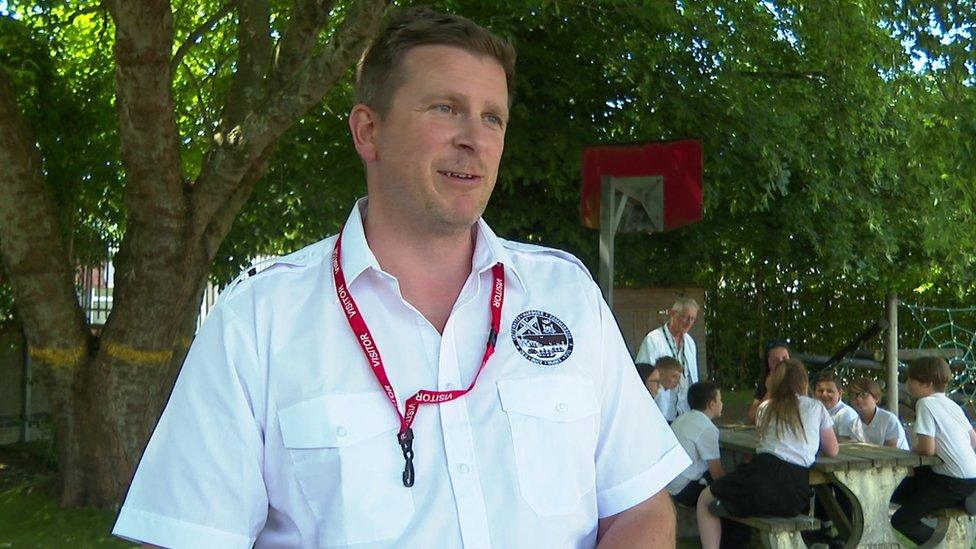
Plymouth Harbour Master Richard Allen said reading had been the "backbone" of his career
Low literacy costs the UK economy £36bn every year, according to the World Literacy Foundation.
Over the two-year project, PCIP has gifted more than 11,400 books to children.
Through a partnership with charity Bookmark, it has donated a further £164,000 of books to 82 primary school libraries in Plymouth.
Ms Bidewell added: "Our programme helps break down barriers and shows children that the people in shiny buildings or with jobs in interesting areas are just like them."
A Department for Education spokesperson said the introduction of the Phonics Screening Check and English Hubs programme had given students "a solid foundation in reading".
They said England came fourth out of 43 countries in a test of the reading ability of nine and 10 year olds, scoring "significantly above" international and European averages.
They added: "We remain committed to addressing attainment gaps where they arise which is why the National Tutoring Programme is targeted at disadvantaged students and has had over three million course starts to date, backed by more than £1bn investment alongside our pupil premium funding, which is increasing to almost £2.9bn in 2023-24."

Follow BBC News South West on Twitter, external, Facebook, external and Instagram, external. Send your story ideas to spotlight@bbc.co.uk, external.
- Published31 July 2023
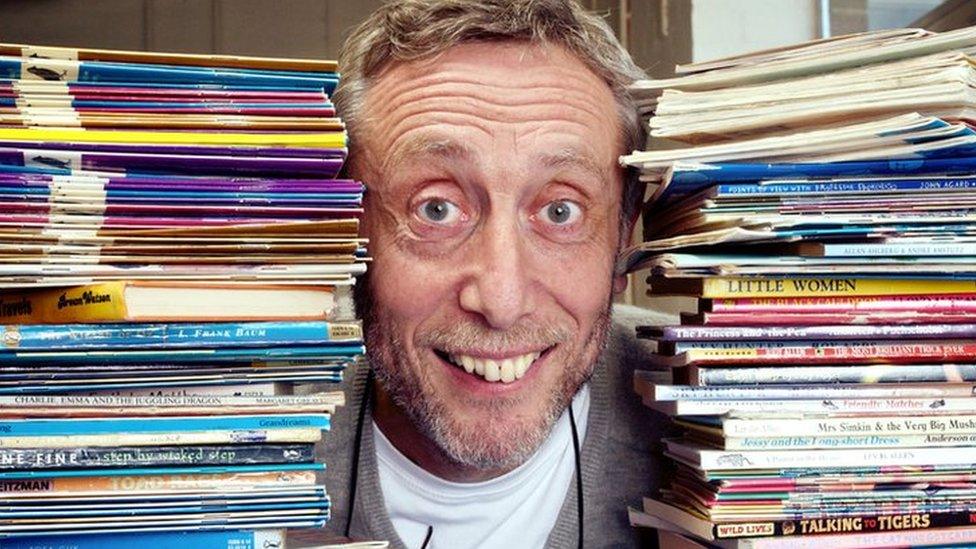
- Published16 June 2023
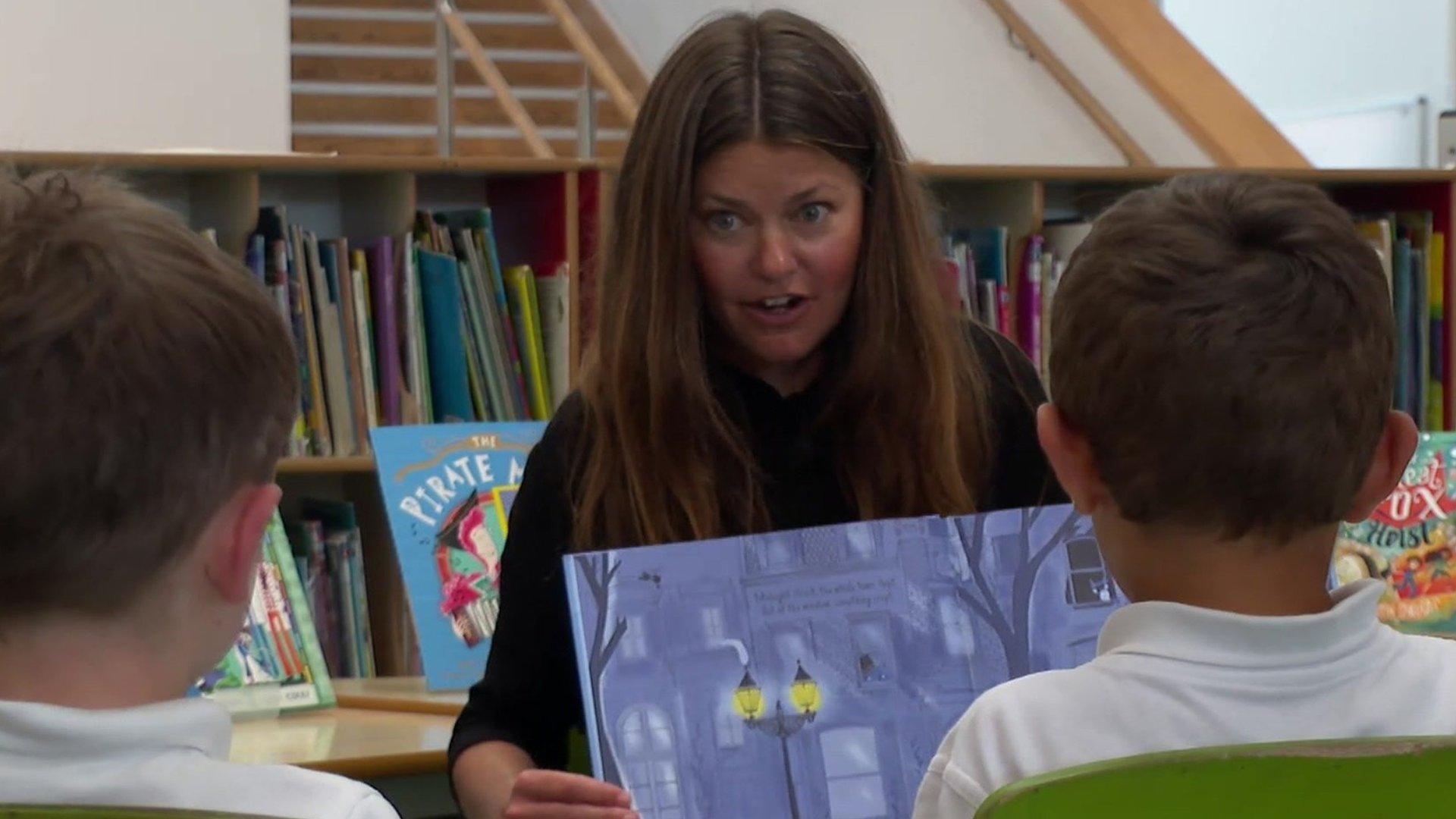
- Published11 January 2023
